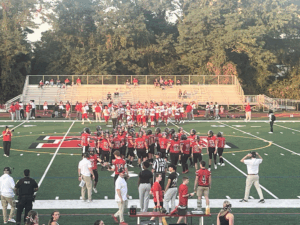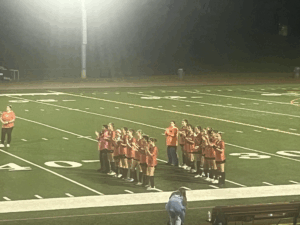
Justin Townes Earle, at just shy of 30, is already making a name for himself in the Americana music field, having released four albums on Bloodshot Records that scooped up much critical praise, not to mention some Americana Music Award nominations.
Last fall, Earle – the son of alt-country legend Steve Earle – released Harlem River Blues. The album, while firmly planted in the American roots rock tradition, explores gospel music (including full-chorus vocals and hopping organ-played lines in its title track).
Audiences at Birchmere will be treated to some of those tracks at Earle’s performance Aug. 20 at 7:30 p.m.
The News-Press spoke to Earle before his upcoming show about his writing process his work within and impressions of Americana music.
LP: How have audiences been responding to tracks from your recent album, Harlem River Blues?
JTE: Everything’s been good so far. I’ve been testing out new songs for a record I’m making in October, so we’re just kind of right now trying to wrap up the tour and get ready for the making of the new record.
LP: You just finished writing your fifth album, titled Nothing’s Gonna Change the Way You Feel About Me Now. What can listeners expect?
JTE: I make records very intentionally. I write them to be records. When I made Harlem River Blues, it was very intentional from the start, and the same thing is going to go for this. Last time, I mixed different forms of rock and gospel. Now I’m going to be playing with different forms of rock and early rhythm and blues. I’m bringing in the same band, with a horns section, on the record, and it’s going to be a little bit – it’s not like it’s going to be a big, thick production, but it will be bigger sounding than it usually is.
LP: What is the writing process like for you?
JTE: I’m very much a throw-and-go kind of songwriter. I write on little notepads and things like that. It makes it kind of a little more organic than sitting down and forcing myself to write at a desk.
LP: In you records, you’ve explored many different types of roots music. Are there any styles or traditions you’d like to dip into, or return to, in the future?
JTE: This album that we were writing, I was with my piano player the other day, and we were sitting down writing the horn parts on piano. The thing that kept popping up was Otis Redding when we were thinking about horns, where they just use a sax and a trumpet as an answer to the vocals. But this record is not going to be like a white boy soul adventure. We’re going to go back to the traditional rhythm and blues sounds, like Booker T. & the M.G.’s were doing, how they went about making the sounds that they did, because they are incredible. So we’re going to kind of flirt with that really spacious rhythm and blues sound.
LP: Which Americana musicians don’t get enough credit in your opinion?
JTE: There are a lot of them. The list of Americana acts that don’t get what they deserve just goes on and on and on and on. You can never name them all because really when it gets right down to it, Americana is a field of music that is dominated by some of the best musicians in the world, but yet it lives in relative obscurity to your common household.
• For more on Justin Townes Earle, visit justintownesearle.com.












